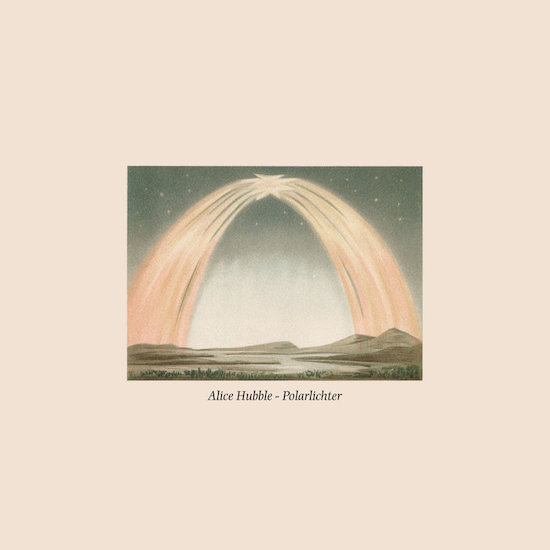Recording her debut album, Alice Hubble hunkered down in her London studio surrounded by analogue synths and aimed to build a world quite apart from her urban surroundings; conjuring the English pastoral whilst nested in the metropolis. Prior to her solo project, Hubble has been one half of Arthur and Martha – self-described “cutie electronica” that essentially takes Saint Etienne’s cover of the Field Mice’s ‘Kiss and Make Up’ as its ideological starting gun. Where that project could veer into the twee, here Hubble presents something significantly more developed.
Discussing the record, Hubble spoke of wishing to “experiment with the form”. It’s debatable to what extent Hubble achieves this – the record gorgeously conjures up the pastoral through Hubble’s soundscapes, but in terms of experimentation it’s anchored no further to the left than Hubble’s most similar contemporaries such as Jane Weaver or Josefin Ohrn + The Liberation. No matter however, for at its best Hubble is able to present a grab-bag of different ideas that rarely stays in one place.
Take ‘Kick the Habit’ – a synth workout around a Bo Diddley groove, demonstrating Hubble’s ability to craft something with a pop sensibility that’s physical whil never veering into the twee. Indeed, there’s moments of remarkable prettiness, ‘Atlantis Palm’ being the creative high point of this. A synthesized celestial choir glows magnificently above a bouncing, arpeggiated scale reminiscent of Yellow Magic Orchestra, and it simultaneously the most innovative and astonishingly beautiful point on the album. Likewise, final track ‘Portalichter (Still)’ is all wide-eyed, childlike psychedelia, carrying the same lysergic innocence as Manchester collective Whyte Horses without ever tripping into the sentimental.
Hubble’s pop leanings are at their most full-bodied on the anthemic ‘Goddess’, a power pop character study and by some distance the most memorable, hooky track on the release. It does, it must be noted, bear some resemblance to Glasvegas’ 2008 breakthrough ‘Geraldine’ in vocal melody and chord sequence. But Hubble’s plaintive vocal style is pleasingly unfussy, and seems informed by the stoic restraint of late 60s English folk vocalists like Shirley Collins or Vashti Bunyan. Indeed, there’s a subtle vein of English folk that throbs away at points on this record, such as on the baroque top line melody of ‘Hunt for the Blood Red Moon’. One hopes that in trying to evoke the pastoral, Hubble continues down this vein in further releases.


